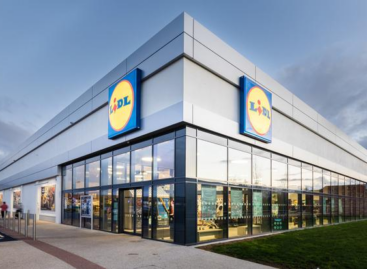The Christmas season is starting earlier and earlier: value for money is the key
This year, 40 percent of Hungarians brought their Christmas shopping forward, which clearly shows the continuous change in shopping habits. When choosing a gift, the main consideration is the price-value ratio and taking advantage of promotions. The uncertainty caused by inflation is affecting the entire European retail market, which is why consumers are making increasingly conscious decisions, Pénzcentrum points out.
More conscious shopping: saving and planning
 According to research conducted in eight countries by ShopFully and Offerista Group, half of consumers reduced their spending in the past year, especially on travel, clothing and restaurant spending. Due to price increases, people start purchasing Christmas gifts as early as November in order to take advantage of the best deals.
According to research conducted in eight countries by ShopFully and Offerista Group, half of consumers reduced their spending in the past year, especially on travel, clothing and restaurant spending. Due to price increases, people start purchasing Christmas gifts as early as November in order to take advantage of the best deals.
Black Friday plays a significant role in the holiday season: this year, 12 percent said they would start shopping on this day, which is an increase of 3 percentage points compared to the previous year. The appeal of sales is outstanding: 51 percent of those participating in the research consider the price-value ratio to be the most important aspect, while 23 percent emphasize sales. In contrast, product selection and location are important to only 8 percent, and quality is preferred by only 7 percent.
Sustainability still in the background
Sustainability considerations continue to be underemphasized during the holiday season. Only 1 percent of those surveyed considered this a primary consideration, which indicates that environmentally conscious thinking has not yet been widely incorporated into Christmas gift-giving.
Digital information about gifts
65 percent of European consumers are now looking for gifts on digital platforms. This trend has almost doubled compared to last year, while the role of traditional media is continuously decreasing. In Hungary, 48 percent of shoppers combine online and in-store shopping, which is in line with the European average.
However, the dominance of physical stores is still significant, especially in Romania (59 percent) and Hungary (48 percent). Most Germans (14 percent) shop exclusively online.
Related news
Related news
The Hungarian Food Book is 50 years old
🎧 Hallgasd a cikket: Lejátszás Szünet Folytatás Leállítás Nyelv: Auto…
Read more >NKFH: inspections focus on discount prices and customer deception
🎧 Hallgasd a cikket: Lejátszás Szünet Folytatás Leállítás Nyelv: Auto…
Read more >







